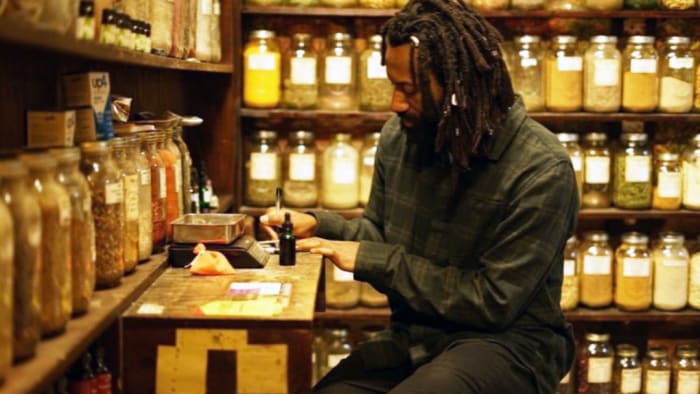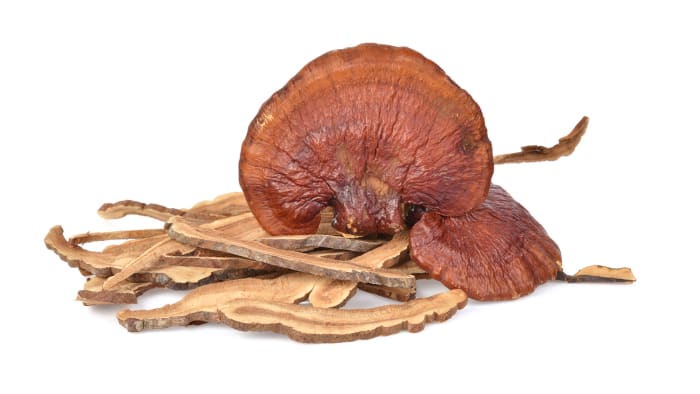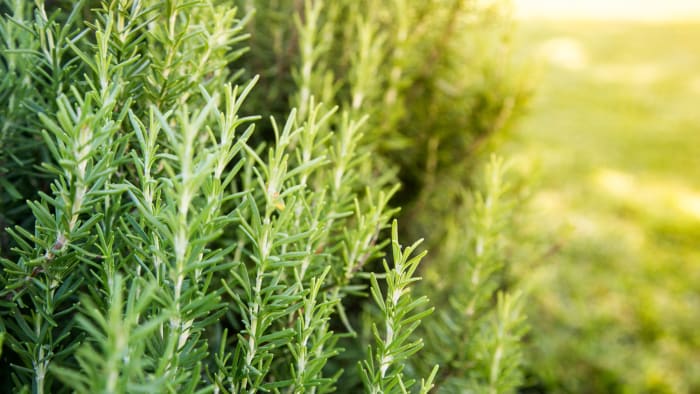What is mental clarity? And does clarity reside only in the mind? In the West, we associate the “mind” with the brain, but is this true? In many indigenous medicine practices, the “mind” is said to begin in the heart. For example, in Ayurveda, “the root” of the mind lives within the heart, and this channel encompasses the whole physical body. I encourage you to drop into the “mind” of your heart as I share some of my favorite plant medicine from different traditions.
Gotu Kola
Gotu Kola or Brahmi (Centella Asiatica) is one of the plants near and dear to me. It is my favorite remedy for mental clarity. When I first began my plant medicine journey, I was fascinated by Ayurvedic theory, and I came across Gotu Kola when researching plants that correspond with the three doshas. In Ayurveda, Gotu Kola in moderation balances each dosha. If taken in excess, it can aggravate the Vata dosha.
See also Uplift Your Spirits with These Dosha-Balancing Essential Oils
My first experience with this herb was ingesting it as a tea. I sat quietly in my bathroom, in the dark, with headphones on, to quiet my senses in order to go within. The book The Yoga of Herbs states that Gotu Kola traditionally was used to, “Increase intelligence, longevity, and memory.” After my first sip of tea, I felt like I received a divine download. These were the instructions: “feel the spaciousness behind your heart, adjust your posture, understand that the way you structure your thoughts is how you structure your body.” My racing thoughts slowed down—what I assumed would feel like mental power and a sense of focus was instead a subtle sense of space, stillness, and awareness. Gotu Kola is used as a tea infusion and in medicinal oils. I invite anyone seeking to cultivate a deeper sense of understanding the mind body connection, greater mental stability, and anyone who regularly practices postures and meditation consistently to delight in Gotu Kola.
Name: Gotu Kola (Centella Asiatica)
What it’s used for: Promotes longevity, memory, ability to meditate, and enhanced cerebral function.
Try: Gaia Herbs Gotu Kola Leaf Liquid Extract
Usage: 5-10 drops under the tongue, or in any suitable liquid, twice daily, although this may vary according to the individual.
Reishi Mushroom
Reishi Mushroom (Ganoderma Lucidum) is one of the top treasured plants in Traditional Chinese Medicine’s long documented history. I was first introduced to Reishi Mushroom during self study of the Daoist herbalism tradition, where it has been given the nickname, “mushroom of immortality”. In the book The Ancient Wisdom of the Chinese Tonic Herbs, Ron Teeguarden says, “Reishi is a superb anti stress herb. It has routinely been used by mountain hermits, monks, Daoist adepts, and spiritual seekers throughout Asia because it was believed to help calm the nerves, improve memory, sharpen concentration and focus, build willpower, and, as a result, help build wisdom.” Reishi is more commonly known in the West for its ability to support the immune system. Because of its bitter taste, it’s a great addition to a cup of coffee.
See also 6 Ways to Incorporate Mushrooms Into Your Morning Routine
Reishi mushroom is considered an adaptogenic herb, which means it adjusts naturally in order to either boost energy or provide relaxation to bring your body back to equilibrium. Harmony in the body creates clarity in the mind. Reishi mushroom is usually taken in the form of a powder or capsules. However, I prefer ingesting Reishi mushroom as a tincture, as it’s faster-acting.
In my experience, Reishi mushroom is a very well-balanced remedy that doesn’t negatively affect any dosha. If you’re seeking a subtle sense of calm, positivity, and a feeling of connection, give Reishi mushroom a try.
Name: Reishi Mushroom (Ganderma Lucidum)
What’s it used for: Considered the “herb of the immortals," Reishi Mushroom supports cognition, nervous system, and the immune system.
Try: Dragon Herbs Duanwood Reishi Drops
Usage: 3-12 droppers per day as needed
Rosemary
Rosemary (Rosemarinus officianalis) is a popular essential oil, culinary staple, and highly revered plant in many cultures. Rosemary is considered to be a polychrest which means, “a medicine that’s useful in many ways.” In the book The Earthwise Herbal, Matthew Wood writes the following about rosemary, “By increasing the oxygenation and “burning processes” throughout the body, glucose levels in the blood are brought down. This strengthens all the functions of the body, but especially those of the heart and brain, which subsist on huge quantities of blood sugar. Rudolf Steiner taught that rosemary increased the sense of selfhood, which he related to the fire element or warmth of the body.”
Drinking Rosemary as a tea infusion always brings me an understanding beyond the simplistic “this plant for that problem”, allopathic way of using plants. Rosemary helps increase what is known in Ayurveda as Agni in the body, while eliminating Ama (toxicity) which improves mental clarity. In Southern rootwork, or African American folk magic, Rosemary is considered a guardian herb that provides protection. It is often used in spiritual cleansing baths and face washes.
See also Essential Oil Mixology 101: Learn How to Mix Your Favorite Scents
Rosemary essential oil is used to improve mood, increase hair growth, and promote a sense of ease. Rosemary leaves can be prepared as a tea infusion or used in cooking, while the essential oil can be used in baths or in skincare. Be mindful that Rosemary is usually contraindicated in people with strong Pitta dosha. It’s ideal for those with a lot of Kapha energy, who struggle with sluggishness.
Name: Rosemary (Rosmarinus officianalis)
What it’s used for: Mood uplift, cleansing, revitalizing energy
Usage: For aromatherapy use. For all other uses, carefully dilute with a carrier oil such as jojoba, grapeseed, olive, or almond oil. Please consult an essential oil book or other professional reference source for suggested dilution ratios.
Cameron Allen is one of Yoga Journal's Live Be Yoga Tour. This year, the Live Be Yoga Tour—our annual roadtrip—is going virtual. We are calling it The Decompression. Recently, we’ve all been asked to journey inward, to take moments of pause and stillness, and to slow down, rest, and prioritize the things we value. Follow the Live Be Yoga 2020 series here, stay connected with us at @livebeyoga on social, and join the movement to find beauty in stillness.










